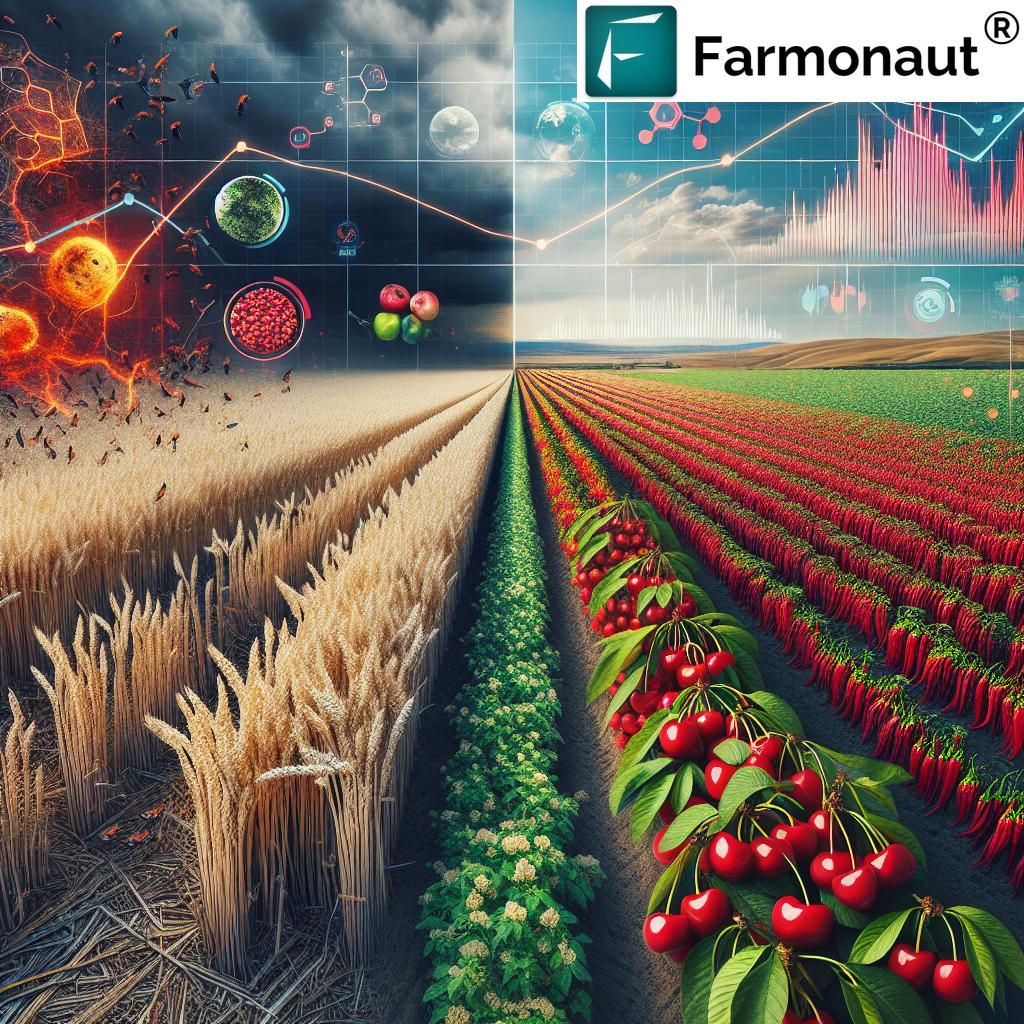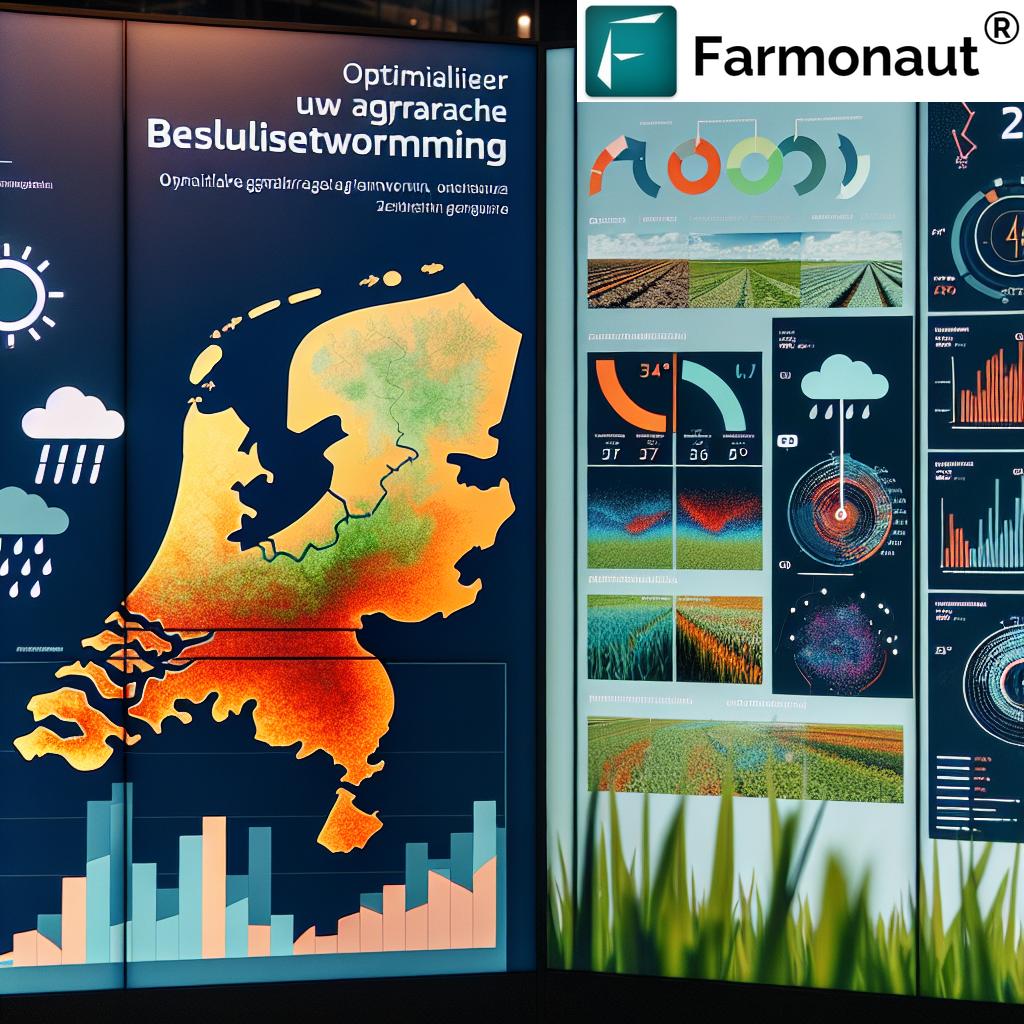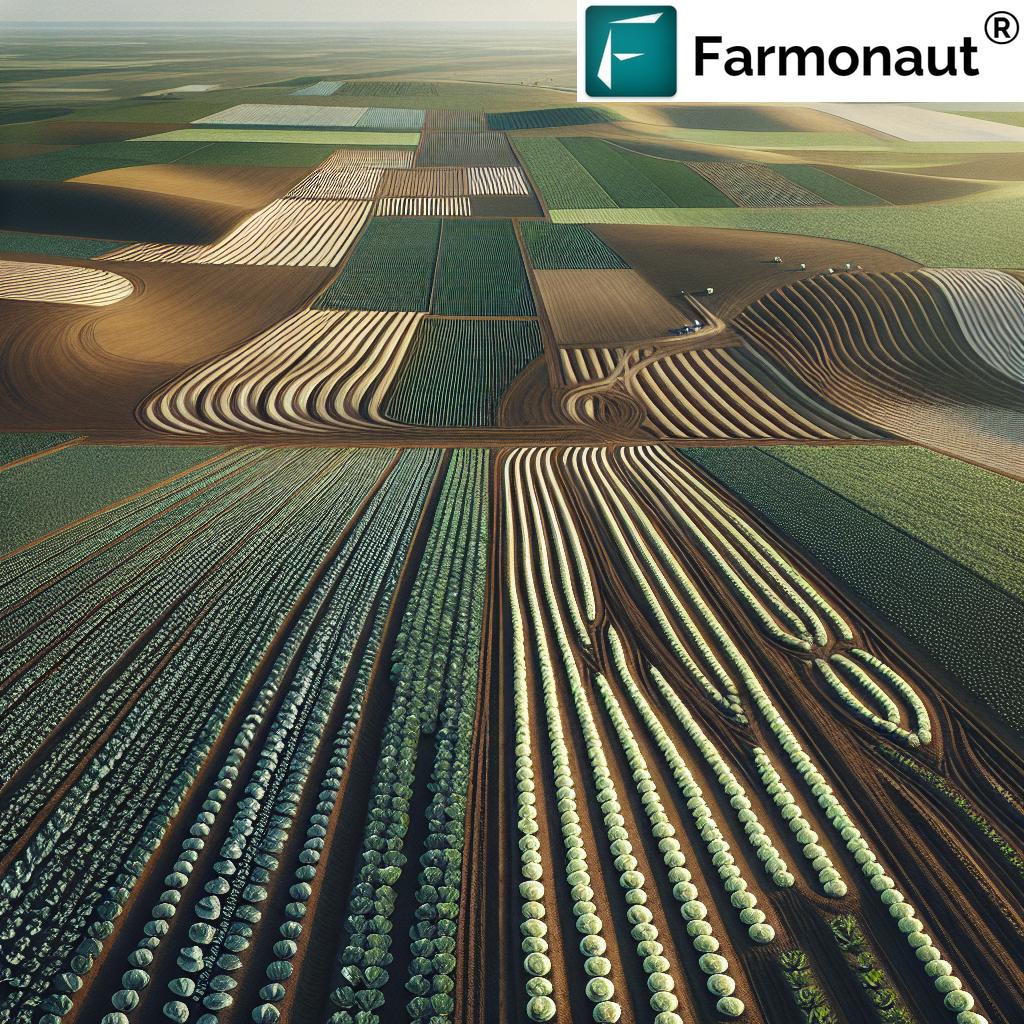Moldova’s Green Revolution: How Organic Fertilizers Boost Sustainable Agriculture and Local Economy
“Moldova’s new organic fertilizer initiative could save millions annually by reducing dependency on costly imports.”
In recent years, we’ve witnessed a remarkable shift in Moldova’s agricultural landscape. The country is embarking on a green revolution that promises to transform not only its farming practices but also its local economy. At the heart of this transformation lies a groundbreaking initiative focused on sustainable agriculture practices and organic fertilizer production. Let’s delve into how this ambitious project is set to revolutionize Moldova’s agricultural sector and position the country as a leader in environmentally friendly farming.

The Dawn of a New Era in Moldovan Agriculture
On December 11, 2023, the government of Moldova took a decisive step towards revolutionizing its agricultural sector. The adoption of a draft law aimed at regulating the availability of fertilizers in the domestic market marks a significant milestone in the country’s journey towards sustainable farming. This initiative is not just about changing farming practices; it’s about reshaping the entire agricultural ecosystem of Moldova.
The new legislation reflects a deep commitment to supporting local producers and promoting sustainable agriculture practices. By aligning with European Union standards, Moldova is positioning itself at the forefront of modern, eco-friendly farming techniques. The focus on allowing the use of recycled and organic materials in fertilizer production is a game-changer, setting the stage for a more sustainable and self-sufficient agricultural sector.
Key Objectives of Moldova’s Organic Fertilizer Initiative
- Standardizing Production Norms: This ensures consistency and quality in locally produced fertilizers.
- Reducing Import Dependency: By fostering local production, Moldova aims to cut down on expensive fertilizer imports.
- Promoting Fair Competition: The initiative creates a level playing field between domestic producers and importers.
- Encouraging Use of Local Raw Materials: This supports the circular economy and reduces waste.
Ludmila Catlabuga, the Minister of Agriculture and Food Industry, emphasized that this initiative is designed to provide farmers with access to more affordable fertilizers derived from organic materials. This approach not only bolsters local agriculture by making inputs cheaper but also contributes significantly to the principles of a circular economy in agriculture.
The Economic Impact of Local Fertilizer Production
The shift towards local fertilizer production is expected to have far-reaching economic benefits for Moldova. Currently, the country spends an estimated $120.8 million annually on imported mineral fertilizers. By fostering domestic production, Moldova stands to save a significant portion of this expense, redirecting funds into the local economy and bolstering agricultural competitiveness.
Moreover, the newly established regulatory framework is poised to facilitate local producers’ access to external markets. This expansion potential is crucial for stimulating production, enhancing exports, and increasing the competitiveness of Moldovan-made fertilizers on the global stage.
Environmental Benefits of Organic Fertilizers
The environmental advantages of shifting to organic fertilizers cannot be overstated. These environmentally friendly farming inputs offer numerous benefits:
- Improved Soil Health: Organic fertilizers enhance soil structure and microbial activity.
- Reduced Water Pollution: They minimize the risk of nutrient runoff into water bodies.
- Lower Carbon Footprint: Production of organic fertilizers typically requires less energy compared to synthetic alternatives.
- Biodiversity Support: They promote a healthier ecosystem for beneficial insects and microorganisms.
By embracing organic fertilizers, Moldova is not just improving its agricultural output; it’s investing in the long-term health of its land and ecosystems.

Aligning with EU Agricultural Standards
Moldova’s move towards organic fertilizers and sustainable farming practices aligns closely with EU agricultural standards. This alignment is crucial for several reasons:
- Enhanced Export Opportunities: Meeting EU standards opens doors for Moldovan agricultural products in European markets.
- Knowledge Transfer: Adopting EU practices facilitates the exchange of agricultural expertise and technology.
- Sustainable Development: It supports Moldova’s broader goals of sustainable economic growth and environmental protection.
By adhering to these standards, Moldova is not only improving its agricultural practices but also positioning itself as a responsible player in the global food industry.
“Moldova’s shift to organic fertilizers aligns with EU standards and could potentially increase agricultural exports significantly.”
The Role of Technology in Moldova’s Agricultural Revolution
As Moldova embarks on this journey towards sustainable agriculture, technology plays a crucial role in optimizing farming practices. Innovative solutions like those offered by Farmonaut can significantly enhance the effectiveness of organic fertilizer use. Farmonaut’s satellite-based crop monitoring technology provides farmers with real-time insights into crop health, soil moisture levels, and other critical metrics.
By leveraging such advanced technologies, Moldovan farmers can:
- Optimize Fertilizer Application: Precise data helps in applying the right amount of organic fertilizers at the right time.
- Monitor Crop Health: Regular satellite imagery allows for early detection of nutrient deficiencies or pest issues.
- Improve Resource Management: Efficient use of water and other resources complements the benefits of organic fertilizers.
To explore how Farmonaut can enhance your farming practices, visit their web application or download their mobile apps:
Comparative Analysis: Traditional vs. Organic Fertilizers in Moldova
| Aspects | Traditional Fertilizers | Organic Fertilizers |
|---|---|---|
| Environmental Impact | Higher risk of soil and water pollution | Environmentally friendly, improves soil health |
| Cost to Farmers | Higher, especially due to import costs | Lower, due to local production and recycled materials |
| Local Production Potential | Limited, mainly imported | High, using local and recycled materials |
| EU Compliance | May not always meet standards | Aligns well with EU agricultural standards |
| Soil Health | Can lead to soil degradation over time | Improves soil structure and microbial activity |
| Long-term Sustainability | Less sustainable, resource-intensive | Highly sustainable, promotes circular economy |
| Estimated Annual Savings for Moldova | N/A | Potential savings of millions annually |
This comparison clearly illustrates the multifaceted benefits of organic fertilizers in the context of Moldova’s new initiative. The shift towards organic fertilizers not only aligns with sustainable agriculture practices but also promises significant economic and environmental advantages for the country.
Challenges and Opportunities in Transitioning to Organic Fertilizers
While the benefits of transitioning to organic fertilizers are clear, it’s important to acknowledge the challenges that come with this shift. Some of these challenges include:
- Initial Yield Adjustments: Farmers may experience a temporary decrease in yields as soil adapts to organic inputs.
- Knowledge Gap: There’s a need for education and training on effective use of organic fertilizers.
- Infrastructure Development: Establishing local production facilities and distribution networks takes time and investment.
However, these challenges also present opportunities:
- Innovation in Agriculture: The transition can spur research and development in organic farming techniques.
- Job Creation: Local production of organic fertilizers can create new employment opportunities in rural areas.
- Diversification of Agriculture Sector: This shift can encourage diversification in crop types and farming methods.
To address these challenges and capitalize on opportunities, collaboration between farmers, government agencies, and agricultural technology providers like Farmonaut is crucial. Farmonaut’s API and developer documentation offer valuable resources for integrating advanced agricultural technologies into Moldova’s evolving farming landscape.
The Future of Moldova’s Agricultural Sector
As Moldova embraces organic fertilizers and sustainable farming practices, the future of its agricultural sector looks promising. We can anticipate:
- Increased Agricultural Exports: Meeting EU standards will open new markets for Moldovan produce.
- Enhanced Food Security: Local production of fertilizers will reduce dependency on imports and stabilize input costs.
- Improved Environmental Health: Reduction in chemical runoff will benefit Moldova’s ecosystems.
- Economic Growth: The development of a local organic fertilizer industry will contribute to overall economic growth.
This transition represents not just a change in farming practices, but a holistic approach to agricultural competitiveness and sustainability. It’s a step towards a more resilient, efficient, and environmentally responsible agricultural sector.
Conclusion: A Green Future for Moldova
Moldova’s green revolution, centered around the promotion of organic fertilizers and sustainable agriculture, marks a significant turning point in the country’s history. By embracing these eco-friendly practices, Moldova is not only ensuring the long-term health of its agricultural lands but also positioning itself as a forward-thinking player in the global food industry.
The benefits of this transition extend far beyond the farm. From economic savings and increased exports to environmental protection and alignment with EU standards, the shift to organic fertilizers promises to transform Moldova’s agricultural landscape in profound ways. As the country moves forward with this initiative, it sets an inspiring example for other nations looking to balance agricultural productivity with environmental responsibility.
The journey ahead may have its challenges, but with continued commitment, innovation, and support from advanced agricultural technologies, Moldova is well on its way to creating a more sustainable, prosperous, and green future for its agriculture sector and its people.
FAQs
- What are the main benefits of organic fertilizers for Moldovan farmers?
Organic fertilizers improve soil health, reduce environmental impact, lower costs for farmers, and align with EU standards, potentially increasing export opportunities. - How will the transition to organic fertilizers affect Moldova’s economy?
It’s expected to reduce dependency on costly imports, create local jobs in fertilizer production, and potentially increase agricultural exports by meeting EU standards. - What role does technology play in this agricultural revolution?
Technologies like Farmonaut’s satellite-based crop monitoring help optimize fertilizer use, monitor crop health, and improve overall resource management in farming. - How does this initiative align with EU agricultural standards?
The focus on organic fertilizers and sustainable practices closely aligns with EU agricultural policies, facilitating potential integration into EU markets. - What challenges might farmers face in transitioning to organic fertilizers?
Challenges may include initial yield adjustments, the need for education on organic farming techniques, and the development of new infrastructure for production and distribution.














